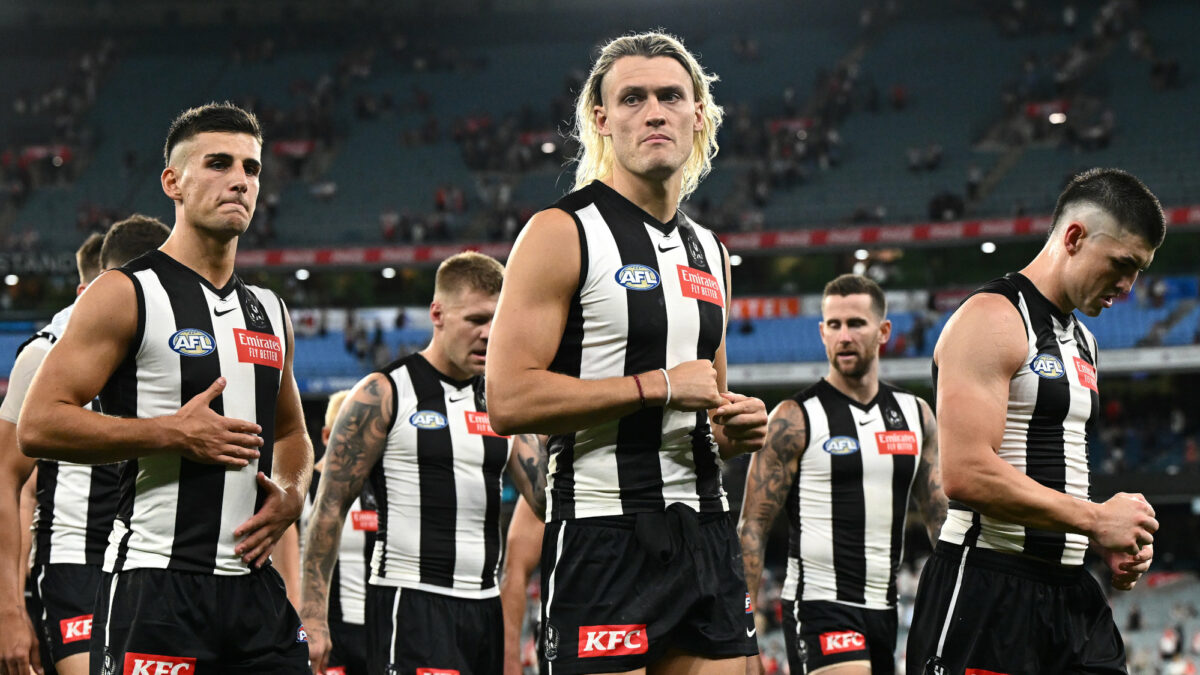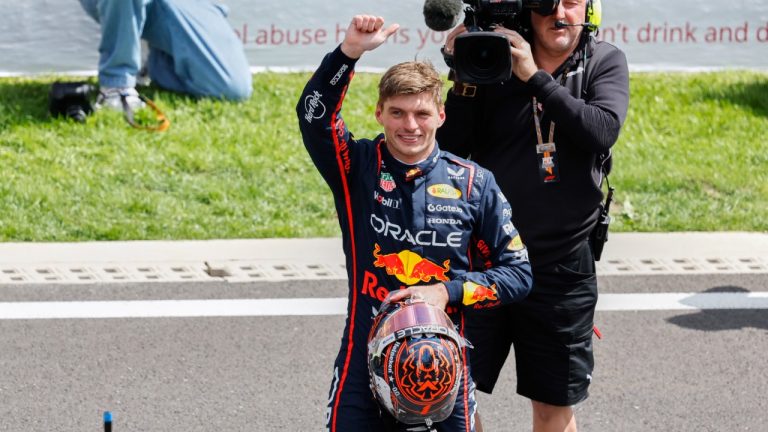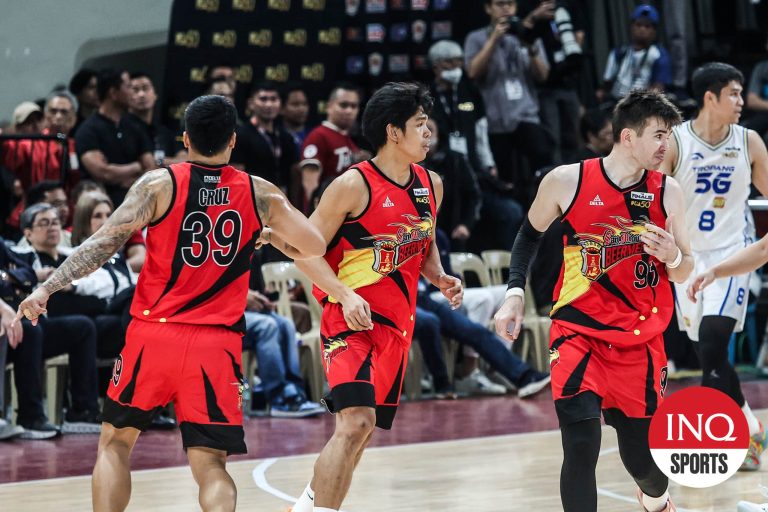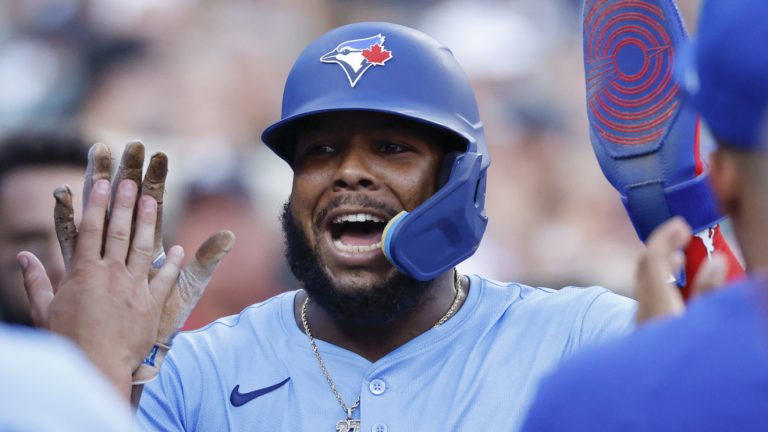Collingwood has enjoyed – or endured – an infamous history built around their woeful grand final record between 1959 and 1990, and then in the 2000s. Grand final losses in 1960, 1964, 1966, 1970, 1977, 1979, 1980, 1981, 2002, 2003, 2011, and 2018, often come with some qualification.
“If only Maynard wasn’t blocked”, and “If Rocca/Carman hadn’t been suspended”, or, “If Rocca’s goal had been paid”, or “Harmes tapped the ball in from out of bounds”, etc. There are others. Many others. Too many others.
And, arguably, it’s resulted in generations of unwitting cultivation of the fanbase. Many Pies fans unconsciously perpetuate the myths and, worse, invest wholesale into these attitudes.
So often, grand final losses (it seems) haven’t been Collingwood’s fault, but the fault of circumstance. Of course, when you blame circumstance, you don’t give credit to the opposition for being too good, and don’t take ownership of what you should’ve done to win, or how you can improve. Just change the circumstances and it’ll be different next time.
Of course, we have no control over circumstances.
We only have control over what we do.
The thing I’ve enjoyed most about Craig McRae’s tenure as Collingwood coach so far is that attempt to reinvent culture. Sure, at times in press conferences he sounds like a life coach, harping on about the club being “a work in progress”, but from the moment he arrived at Collingwood he hasn’t relied on excuses (an odd slip here and there aside), and he’s sought to reframe how the club perceives itself moving forward.
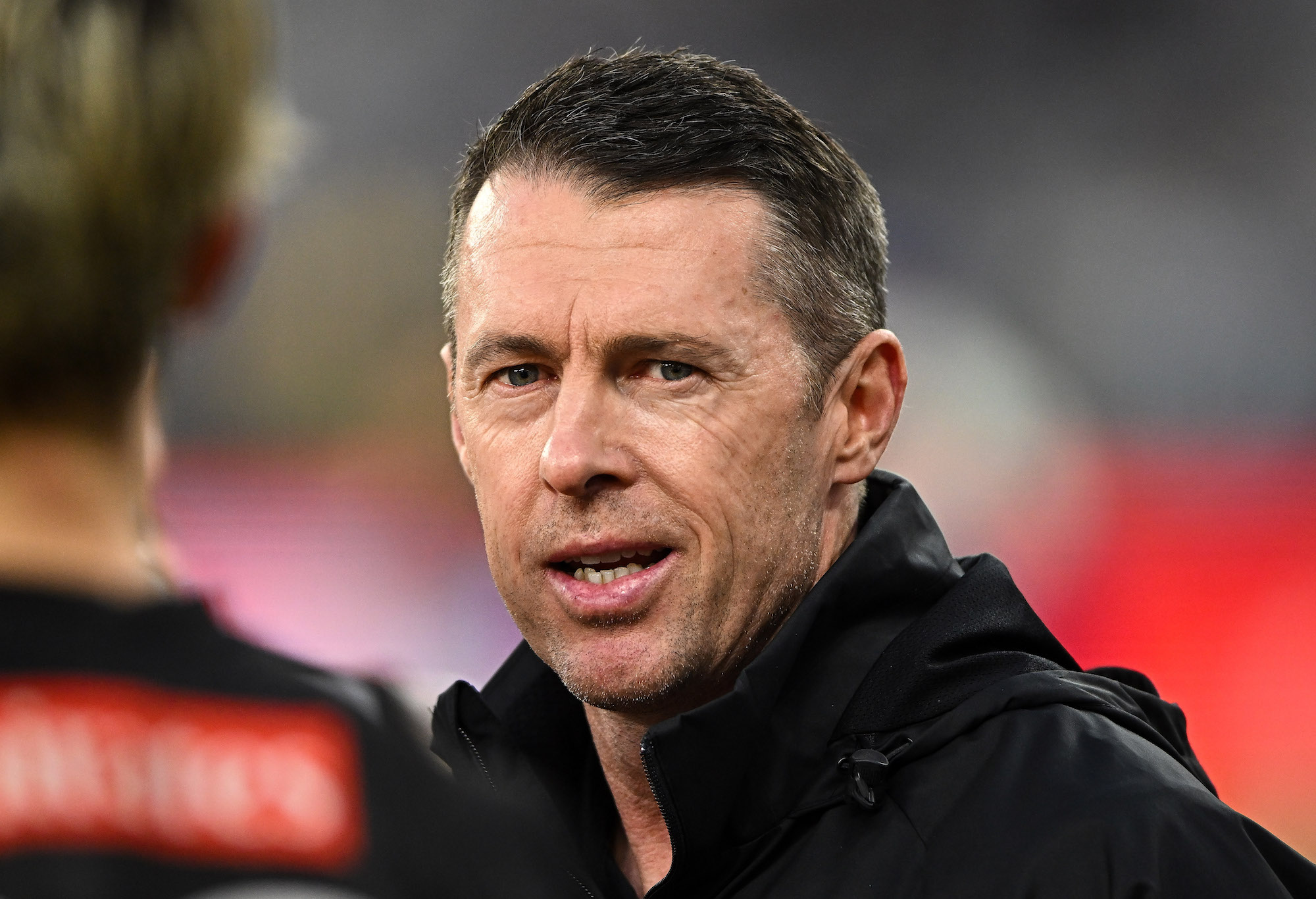
Collingwood coach Craig McRae. (Photo by Daniel Carson/AFL Photos via Getty Images)
Now that’s great for the club itself, but it hasn’t necessarily resonated through the Collingwood faithful or, if it has, it hasn’t done it with any great influence.
Here’s an example. Going into 2025, many fans were complaining about Collingwood’s tough draw. Some lamented it was tougher than Carlton’s, who finished one position higher a year earlier. So surely their draw of a finalist should be tougher than a club who finished ninth, right? It just wasn’t fair. The AFL was out to screw Collingwood, the draw is rigged, and so on.
When these complaints are propagated ad nauseam, I don’t think the complainers realise they’re arming the club with an excuse to fail. If they do, it’s simply because the draw was too tough. There. That’s already taken care of it before a ball’s bounced.
But what does this chorus do to the collective psyche? Nothing? Potentially. Maybe I’m sounding too much like a new-age life coach now.
I do wonder, though, if this persistent chorus does get into the heads of the players – even subconsciously. It’s a lot of noise to shut out, and we do know that players are aware of narratives, especially in an age where social media immediately disseminates information.
So how pervasive can such perspectives be?
This is one thing that frustrated me with Eddie McGuire’s fight against the Brisbane salary cap in the early 2000s. While I agreed with McGuire in principle, I disagreed with how public he was, because he was effectively telling everybody that it was impossible to compete with the Lions because they had a salary cap advantage. How, then, did the Collingwood players of that time feel?
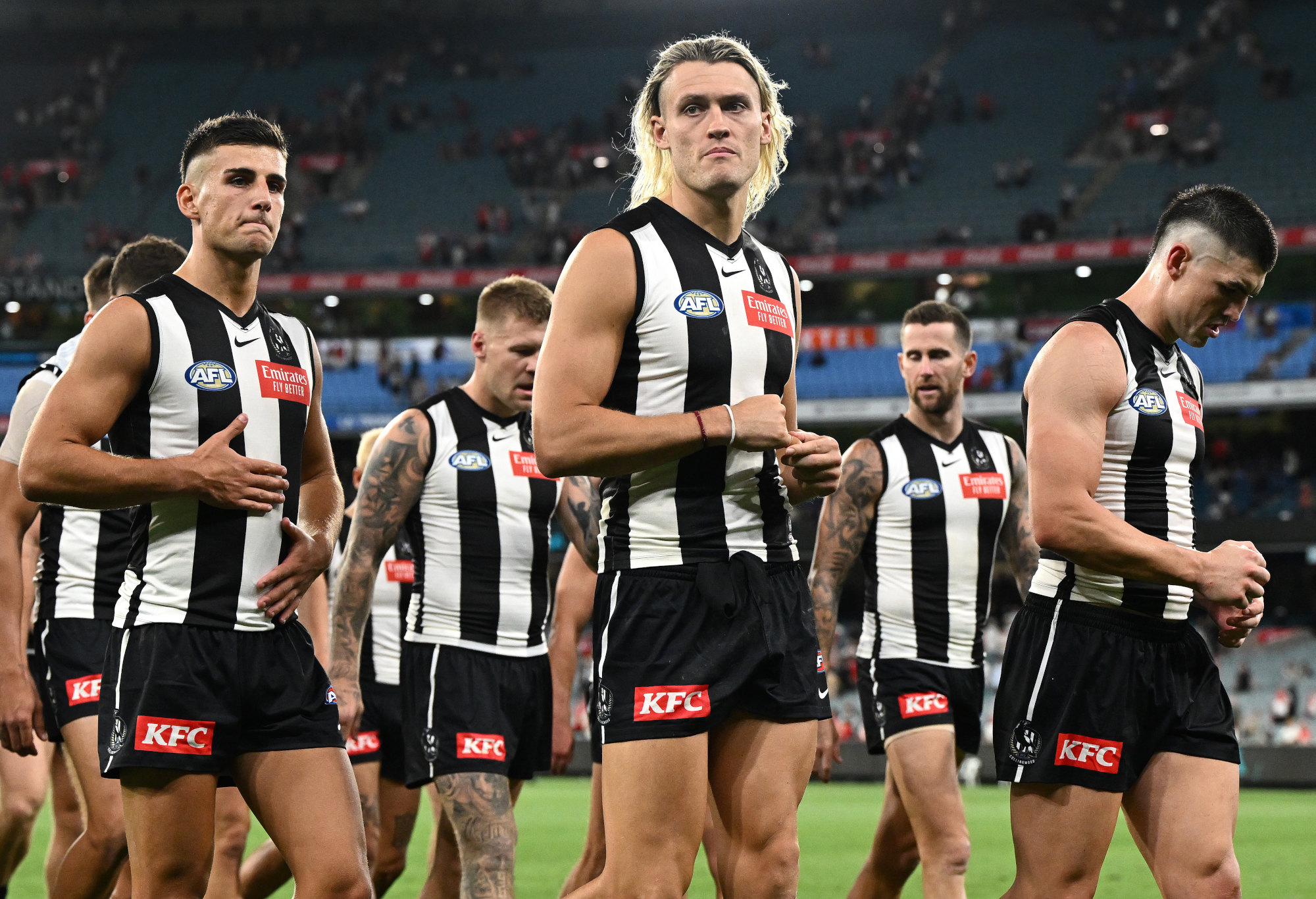
(Photo by Quinn Rooney/Getty Images)
Going back to the fixture, I simply view it as this incontrovertible reality: if you’re good enough, you’ll win. And if you don’t win, then you weren’t good enough, so do whatever you need to do (within legal reason) to get better. Take the whiny qualifications as to why it’s so tough right out of the equation, and stop foreshadowing a validation should failure occur.
I’m even seeing it happen right now with Collingwood’s upcoming game against Carlton. Collingwood are 2-1. Carlton are 0-3 with concerns about their playing style, and incredible pressure building within the club. I would’ve thought the attitude (as far as Collingwood are concerned) would entail going in there and doing whatever needs to be done to win.
AFL tipping is BACK on The Roar for 2025! Get your tips in here.
What I’m seeing instead, though, is that Carlton will make this their grand final, so naturally they’ll lift for this game. Harry McKay will be back, so naturally they’ll get stronger when they play Collingwood. I think it’s only a week out from a full moon – maybe that’ll be an issue too. Already, the excuses are out, fans preparing themselves for the worst-case scenario.
I know this isn’t specific to Collingwood fans. Many fans would do it. I’ve heard their laments. I once sat next to an Essendon fan who opined that the umpires screwed them every week, so he was used to it. Funny thing is, I once sat next to a Carlton fan who said the same thing.
I’m aware there are Collingwood fans who feel similarly, so this isn’t to highlight or condemn those opposition fans, but just to illustrate prevailing attitudes often being so prejudiced to the worst outcome; it’s impossible to see anything else.
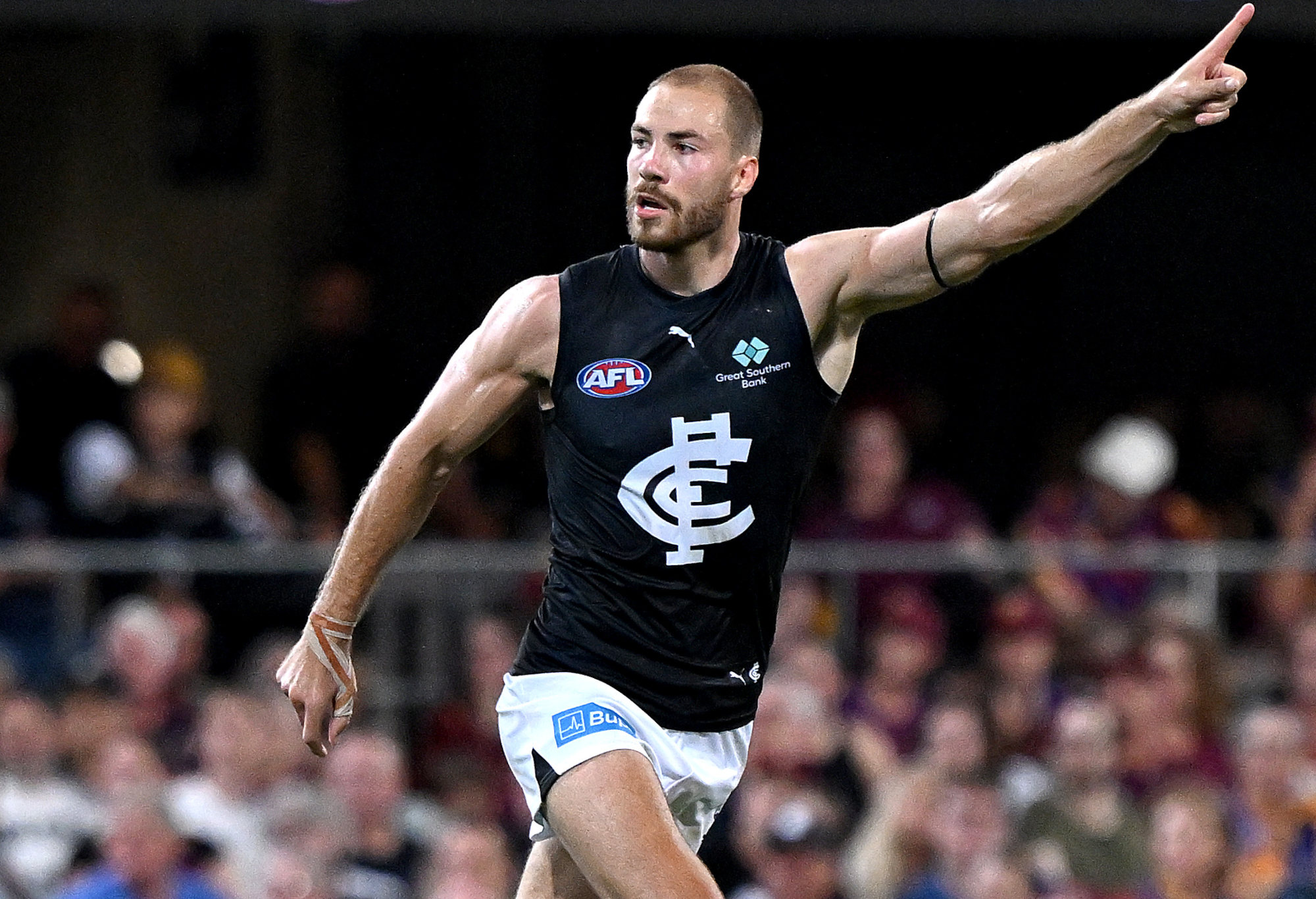
Harry McKay. (Photo by Bradley Kanaris/Getty Images)
As far as Collingwood goes, it’s just so frustrating to listen to time and time and time again. I’m not expecting delusion – e.g., fans exulting that Collingwood will win by twenty goals, that they’re the greatest (another issue in itself), or that we should invest in unfailing positive thinking – but just focus with no attachment to any negative connotation, or the preproduction of an excuse that can be realised afterwards.
That’d be a nice change.
But maybe all this is a reflex of the typical fan’s condition and we’re only truly happy when we’re miserable, because at least then we can aspire to be something better, rather than face the prospect of falling, and failing again.
